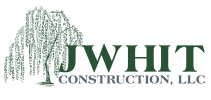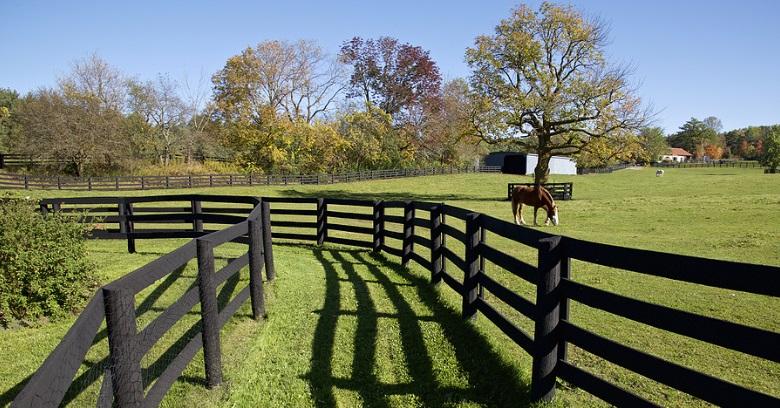Livestock fences are available in many different types and materials to suit different farm and ranch needs.
Before investing, it is critical to understand that livestock and ranch fencing should not be generalized, as one fence does not fit all animals.
Choose the right livestock fencing based on each animal’s habits and their likelihood to test the fencing, then select a good type to keep them safe and well-contained.
Cattle Fencing
Cattle are probably the easiest of all farm animals to fence in.
They are less fractious than horses, generally slower-moving, and less likely to try to escape as long as they have good pasture.
Considering that ranchers frequently enclose large acreages for grazing their cattle, livestock fences must be durable yet also inexpensive and easy to install.
Woven wire, electric wire, and high tensile wire installed to about 54” make suitable and affordable ranch fencing options for cattle and a better choice than barbed wire.
Barbed wire is still widely used because of its low cost; however, it does come with some significant disadvantages including how dangerous it can be to humans and unlucky cattle alike.
Horse Fencing
In contrast to cattle, horses can be highly challenging to contain and keep safe, as horses are more excitable, more likely to try to escape, and very destructive to fencing at times.
Livestock fencing for horses must be taller, stronger, more visible, and safer as well as resist kicking, pushing, and chewing.
Ideal horse fences include post and board, wooden rail, and other wood types, vinyl fencing, and woven wire fencing.
Electric wire, electric tape, and high-tensile wire are also suitable as long as they are highly visible.
Combinations of these options, like wood with electric wire to prevent damage, wire mesh with a board on top, or high tensile topped with a visible electric tape are also popular choices for horse ranch fencing.
Horse fencing should be at least 60” tall or taller depending on the horse to discourage jumping and leaning over.
Goat and Sheep Fencing
Because goats and sheep are smaller than horses and cattle, they can be contained with a shorter barrier.
Livestock fencing for these animals should also have smaller openings to keep them from passing through as they would with board, strung wire, and similar options.
Another thing to keep in mind is that goats in particular tend to find ways to get out of many types of enclosures.
The right escape-proof option for goats and sheep tends to be woven wire or wire mesh with smaller openings.
Hog Fencing
With their brute strength, pigs can be the hardest of all animals on livestock fences, so they must be enclosed with the strongest of all types.
Fortunately, since it does not have to be very high, welded metal hog panels are the best choice, as it is rigid and has small openings.
Heavier gauge wire mesh also works when framed with wooden boards.
Enclosures made from tube steel panels with smaller openings also work well for hogs.
Fowl Fencing
The biggest factor when containing chickens, ducks, turkeys, and other fowl is having a small enough opening to prevent escape.
As with goats, sheep, and pigs, the ideal livestock fencing for birds is woven wire, wire mesh, or even hog panels, all with spaces small enough to prevent escape while also keeping prey animals out.
Protect Livestock of All Kinds With Livestock Fences
No matter what type of animal you keep on your property, the right ranch fencing is essential for keeping animals contained and avoiding injuries and animal damage.
Make the best choice by factoring in animal size, temperament, curiosity, and motivation to escape.
A strong fence that can withstand each animal’s specific behaviors is the right investment for those animals!

